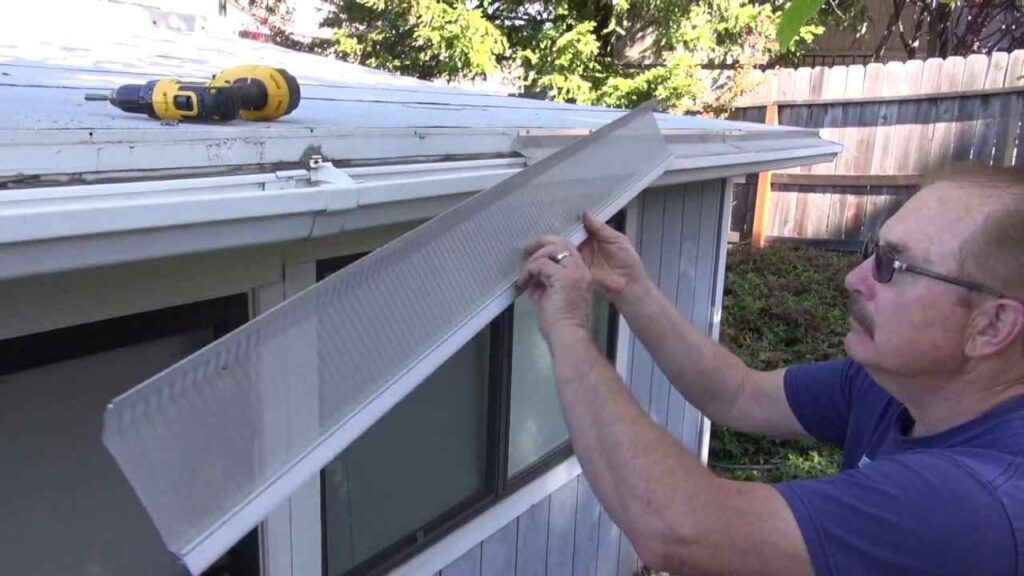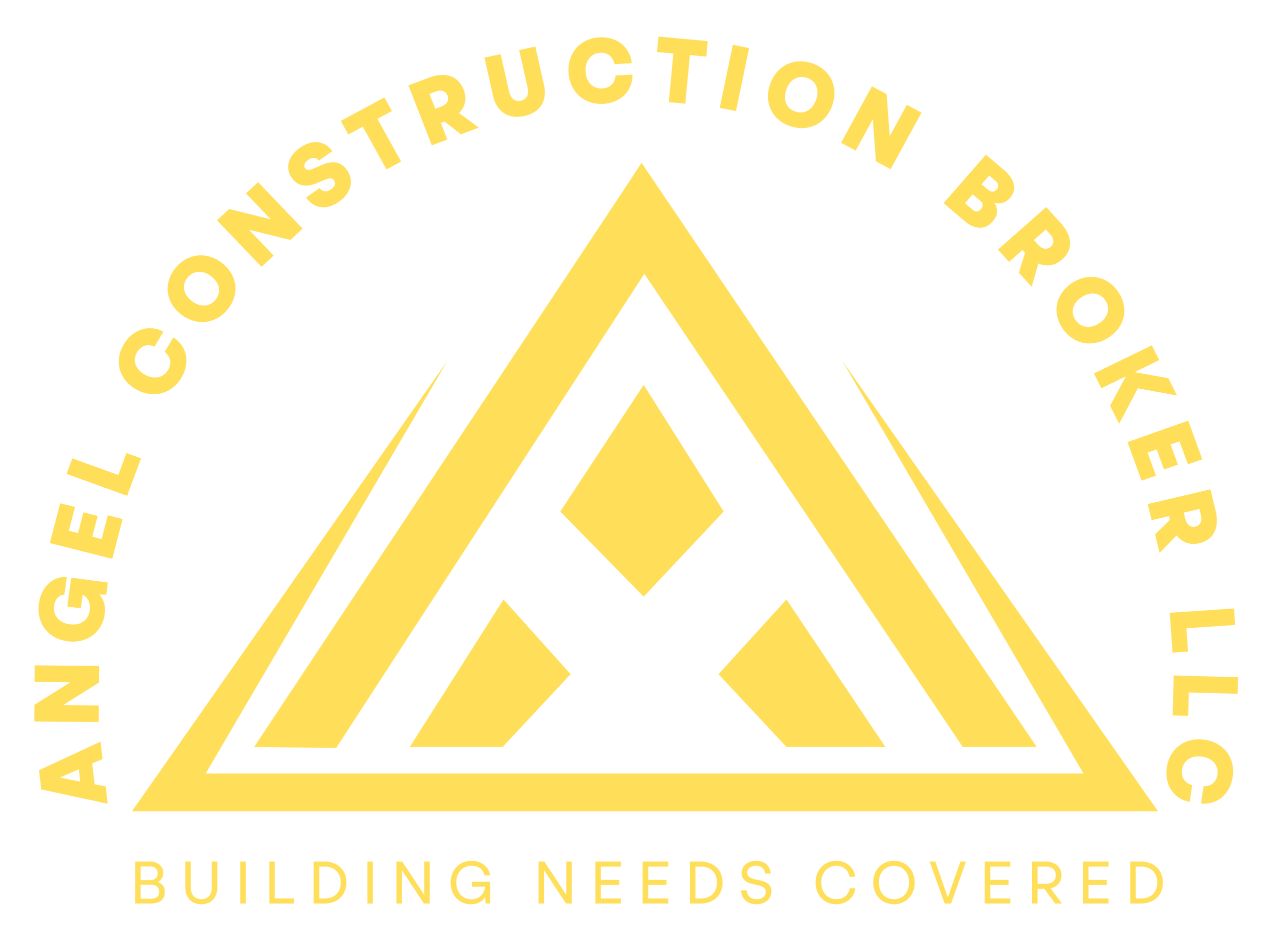Ever noticed those unsightly rust spots on your gutters and wondered what’s causing them? Gutter corrosion is a common issue that can compromise the efficiency and longevity of your drainage system. It usually occurs when gutters are exposed to moisture and environmental pollutants over time. Factors like salt from coastal air, acid rain, and debris buildup can accelerate this process. Left unchecked, corrosion can lead to leaks and structural damage, affecting your home’s foundation and exterior. In this guide, we’ll dive into the causes of gutter corrosion and explore practical solutions for repair and maintenance with the guidance of Angel Construction Broker.

But don’t worry, not all is lost! There are effective ways to address and even prevent gutter corrosion. Regular maintenance and using protective coatings, along with professional gutter repair and maintenance services, can significantly extend the life of your gutters, keeping your home safe and sound.
Common Causes of Gutter Corrosion
Gutter corrosion is typically caused by prolonged exposure to moisture and environmental pollutants. When gutters remain wet for extended periods, especially from rain or snow, they are more susceptible to rust and decay. Additionally, leaves, twigs, and other debris can trap moisture, further accelerating the corrosion process. Pollutants like acid rain, industrial emissions, and salt from coastal air can also corrode gutter materials over time. Poor maintenance and infrequent cleaning exacerbate these issues, leading to more rapid deterioration. Understanding these common causes helps homeowners take proactive steps to prevent gutter corrosion and extend the life of their gutter systems.
Environmental Factors Contributing to Corrosion
Several environmental factors contribute significantly to gutter corrosion. Coastal areas with high salt content in the air can cause metal gutters to rust more quickly. Acid rain, which contains higher levels of sulfuric and nitric acids due to industrial pollution, can corrode metal gutters and weaken their structure. Additionally, regions with high humidity or frequent rainfall experience more moisture exposure, increasing the risk of rust and corrosion. Temperature fluctuations can also cause expansion and contraction in gutter materials, leading to cracks and corrosion over time. Being aware of these environmental factors can help in choosing the right materials and protective measures for your gutters.
Impact of Coastal Air on Gutters
Living near the coast has its perks, but it can be tough on your gutters. The high salt content in coastal air accelerates the corrosion process, especially for metal gutters. Salt particles cling to the surface, and when combined with moisture from rain or humidity, they create an environment conducive to rust. Over time, this can lead to significant damage, causing leaks and structural issues. Regular cleaning and maintenance, along with using corrosion-resistant materials like aluminum or vinyl, can mitigate these effects. If you live in a coastal area, it’s essential to pay extra attention to your gutters to ensure they remain in good condition.
Effects of Acid Rain on Gutter Material
Acid rain, caused by industrial emissions mixing with atmospheric moisture, poses a significant threat to gutter materials. When acid rain falls on metal gutters, it can accelerate the corrosion process, weakening the material and leading to rust and leaks. Over time, this can compromise the structural integrity of the gutters, requiring more frequent repairs or replacements. Acid rain can also affect the finish of the gutters, causing discoloration and reducing curb appeal. To combat these effects, consider using acid-resistant materials and applying protective coatings. Regular maintenance and cleaning can also help minimize damage from acid rain.
Role of Debris Buildup in Gutter Corrosion
Debris buildup is a common issue that can lead to gutter corrosion. Leaves, twigs, and other organic matter can accumulate in gutters, trapping moisture and creating a breeding ground for rust. When debris clogs the gutters, water cannot flow freely, leading to standing water that accelerates the corrosion process. Over time, this can cause leaks, sagging gutters, and damage to the fascia boards. Regularly cleaning your gutters and installing gutter guards can help prevent debris buildup, ensuring proper drainage and reducing the risk of corrosion. Keeping your gutters clear is a simple yet effective way to maintain their longevity.
Signs Your Gutters Are Corroding
Recognizing the signs of gutter corrosion early can save you from costly repairs. Look for rust spots or discoloration on the surface of the gutters, which indicate the onset of corrosion. Peeling paint or flaking material can also be a sign of underlying rust. If you notice water stains or damage on your home’s exterior walls, it could mean your gutters are leaking due to corrosion. Sagging or pulling away from the house suggests structural weakening caused by rust. Regularly inspecting your gutters for these signs can help you address issues promptly, preventing further damage to your home.
Preventative Measures Against Gutter Corrosion
Preventing gutter corrosion involves a combination of regular maintenance and protective measures. Clean your gutters frequently to remove debris that can trap moisture and accelerate rust. Consider installing gutter guards to reduce the amount of debris entering the gutters. Applying a protective coating or sealant can provide an additional layer of defense against moisture and environmental pollutants. Choose corrosion-resistant materials, such as aluminum or vinyl, for your gutters, especially if you live in a coastal or industrial area. Regular inspections and prompt repairs of any damage can also help maintain the integrity of your gutters and extend their lifespan.

Benefits of Protective Coatings for Gutters
Applying protective coatings to your gutters offers several benefits, particularly in preventing corrosion. These coatings act as a barrier against moisture, salt, and other environmental pollutants that can cause rust. By sealing the surface, they help maintain the structural integrity and appearance of the gutters, reducing the need for frequent repairs or replacements. Protective coatings can also enhance the durability of the gutters, allowing them to withstand harsh weather conditions better. Additionally, they can improve the aesthetic appeal of your home by keeping the gutters looking clean and well-maintained. Investing in protective coatings is a cost-effective way to prolong the life of your gutters.
Regular Maintenance Tips to Prevent Corrosion
Regular maintenance is key to preventing gutter corrosion and ensuring their longevity. Start by cleaning your gutters at least twice a year to remove leaves, twigs, and other debris that can trap moisture and cause rust. Inspect the gutters for any signs of damage, such as rust spots, leaks, or sagging, and address these issues promptly. Consider installing gutter guards to reduce the amount of debris entering the gutters. Applying a protective sealant or coating can also help protect against moisture and pollutants. By staying proactive with maintenance, you can prevent corrosion and keep your gutters functioning effectively.
How Professional Gutter Repair Services Can Help
Professional gutter repair services offer expertise and specialized tools to address corrosion and other gutter issues effectively. These professionals can accurately assess the extent of the damage and recommend the best course of action, whether it’s repairing specific sections or replacing the entire gutter system. They can also apply protective coatings and sealants to prevent future corrosion. Additionally, professional services can perform thorough cleanings and regular maintenance, ensuring your gutters remain in top condition. By hiring experts, you can save time, avoid potential safety hazards, and ensure your gutters are properly maintained and repaired, extending their lifespan and functionality.
Cost Considerations for Repairing Corroded Gutters
Repairing corroded gutters can vary in cost depending on the extent of the damage and the materials used. Minor repairs, such as patching small holes or applying a sealant, are relatively inexpensive. However, extensive corrosion that requires replacing large sections or the entire gutter system can be more costly. The type of material also affects the price; for example, aluminum and vinyl gutters are generally more affordable than copper. Additionally, labor costs for professional repairs should be factored in. While DIY solutions can save money upfront, professional repairs ensure long-term durability and effectiveness. Weighing these cost considerations helps in making an informed decision.
Conclusion
In conclusion, understanding the causes and preventative measures for gutter corrosion is essential for maintaining the health and longevity of your home’s drainage system. Environmental factors like coastal air, acid rain, and debris buildup significantly contribute to gutter corrosion, but regular maintenance and professional repair services can mitigate these issues. Applying protective coatings, conducting frequent inspections, and choosing durable materials are effective strategies to prevent corrosion. Recognizing early signs of damage and addressing them promptly can save you from costly repairs and protect your home’s foundation and exterior. By investing in proper gutter care, you ensure your gutters remain functional and your home safeguarded against water damage for years to come.
FAQs
What are the main causes of gutter corrosion? Gutter corrosion is primarily caused by prolonged exposure to moisture, environmental pollutants like acid rain, and debris buildup.
How can I prevent gutter corrosion? Regular cleaning, installing gutter guards, applying protective coatings, and choosing corrosion-resistant materials can help prevent gutter corrosion.
Is it necessary to hire professional services for gutter maintenance? While DIY maintenance is beneficial, professional services offer expertise and thorough inspections, ensuring long-term protection and effectiveness.
What are the signs that my gutters are corroding? Look for rust spots, peeling paint, leaks, sagging gutters, and water stains on exterior walls as indicators of gutter corrosion.
How often should I inspect and clean my gutters? It’s recommended to inspect and clean your gutters at least twice a year, in the spring and fall, to prevent corrosion and other issues.
